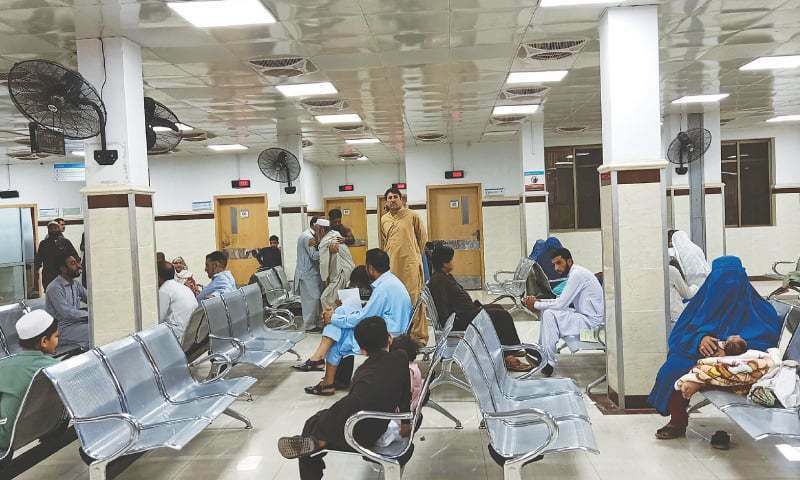PESHAWAR: The Secretary of Health in Khyber Pakhtunkhwa has urgently reached out to the caretaker Chief Minister, seeking immediate assistance to address a critical shortage of medical equipment and emergency medicines in hospitals across the province. This includes vital supplies such as anti-rabies vaccines and immunoglobulin.
The severity of the situation was conveyed through a formal letter from the Secretary of Health to the Caretaker Chief Minister, emphasizing the urgent need for intervention. The shortage has created a precarious healthcare scenario, raising concerns about the well-being of patients requiring essential medical treatment.
An estimated Rs 9 billion is deemed necessary to fulfill the urgent demands of hospitals in Khyber Pakhtunkhwa. Unfortunately, the lack of funds has exacerbated the situation, leading to the regrettable consequence that no orders have been placed for the supply of crucial medicines.
The health department is currently wrestling with substantial outstanding liabilities amounting to Rs 2.67 billion. The financial strain, exacerbated by a lack of funds, has severely hindered the procurement of essential medical supplies.
In the financial year 2022 and 2023, a meager allocation of Rs 99.70 million was set aside for the purchase of medicines, a sum significantly insufficient given the extensive needs of the healthcare system.
Adding to the complexity, suppliers demand a considerable 30 to 90 days for the delivery of ordered medicines, introducing a logistical challenge to the already critical situation.
In response to the escalating crisis, an urgent infusion of an additional grant totaling Rs 6 billion has been identified as necessary. The financial crunch has left the health department in an untenable position, endangering the delivery of essential healthcare services to the people of Khyber Pakhtunkhwa.
The gravity of the situation prompted the Governor of Khyber Pakhtunkhwa to pen a letter to the Caretaker Chief Minister, urging prompt and decisive action to rectify the medicine shortage and ensure the continued provision of quality healthcare to the province’s residents. This unfolding healthcare crisis underscores the urgency of addressing financial constraints and prioritizing the health and well-being of the populace.


